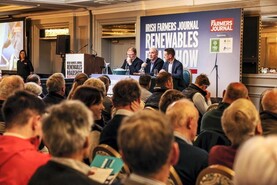DEAR SIR: The impacts of the cessation in Ireland of the production of horticultural peat was brought into focus by the gathering outside the Convention Centre where the Dáil was in session, as recorded by RTÉ on Wednesday 14 July. A very logical case was made by the growers.
A reason for the cessation was related to the perceived evolution of carbon dioxide (CO2) from the biological degradation of the harvested peat and from the drained bogland sources.
Amazingly, peat could be imported to meet the needs of the growers. That peat, sourced in northern Europe, especially in the Baltic countries and Sweden, is considerably more expensive for the growers, and will of course, have a significant carbon transport footprint.
The cessation of the use of our great peat resource for energy is understandable, but it is appropriate to ask if those responsible for the cessation of harvesting our peats for horticulture had any awareness of the compositions, the quality, and the performance of our peats relative to those of the imported products.
The growers know that the imported peats degrade rapidly and leave little meaningful residual product.
In contrast, our peats transform slowly, significantly enhance crop growth, and leave a humified residue that is an excellent soil amender. Have those who initiated the ban considered that the additional transformation of atmospheric CO2, resulting in enhanced crop yields through photosynthesis, far exceeds its evolution from the biological degradation of the substrate?
There can be a great future for our horticultural industry. At present, it is worth about € 500m. In contrast, horticultural exports from the Netherlands are worth about €67bn. The Netherlands is smaller than the combined areas of Munster and Connacht. Surely, there is great potential for the expansion of horticulture in Ireland.
The threat from the peat harvesting ban to the livelihoods of our growers and their employees should be removed, allowing them to obtain from indigenous sources as much peat as they need.
It should be made obvious to all who wish to expand their operations and for newcomers to the industry that peat supplies will be available for them for as long as is needed.
Inevitably, peat substitutes can emerge, but that will take time and a considerable research input and support. It is essential that acceptable peat substitutes will be required to match the properties of our native product.






 This is a subscriber-only article
This is a subscriber-only article











SHARING OPTIONS: